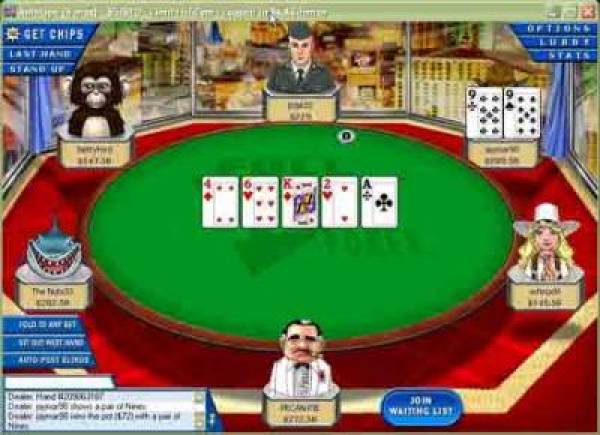California Tribal Alliance Warning About Internet Poker

As legislators consider legalizing online games, the coalition says a new law could violate existing compacts.
By Patrick McGreevy, LA Times
Reporting from Sacramento - As legislators consider making California the first state in the country to legalize and regulate Internet poker, a coalition of Indian gaming tribes warned them Friday that the proposal would not create the budget windfall backers claim and could actually cost the state hundreds of millions of dollars.
The tribes, which have hired Gov. Arnold Schwarzenegger's former budget chief to help make their case, argue that the legalization of Internet poker would violate existing gaming compacts and allow the tribes to stop paying the state its $365-million annual cut of slot machine revenue.
The legalization of Internet poker will be debated Tuesday at a hearing of the state Senate Committee on Governmental Organization. This is seen as a first step toward the possibility of legislation to create a state-sanctioned game.
Legalization supporters say it would allow the state to tap into some of the $347 billion experts say is wagered online globally each year, all of it on sites operated offshore because of laws preventing them from setting up shop in the U.S.
The legalization effort is spearheaded by a group that includes the Commerce Casino and the Morongo Band of Mission Indians. Its experts believe such games may bring in hundreds of millions of dollars to state coffers.
A rival group of Indian gaming tribes that opposes Internet poker, the California Tribal Business Alliance, has hired Mike Genest, who until last year was Schwarzenegger's finance director, to vet the claims of proponents.
On Friday, the alliance released a study by Genest making the case that state-sanctioned Internet poker would violate existing compacts giving Indian tribes exclusive rights to electronic gambling, jeopardizing $365 million in state revenue.
That loss, Genest said, would not be fully offset by an annual increase in revenue of $53.6 million from a 10% participation tax on poker players and "an unknown, but probably not substantial increase" in personal income tax collections from winning gamblers.
"The proponents of this proposal to legalize Internet poker in California are touting it as a major solution to our state's budget crisis," said alliance Chairwoman Leslie Lohse, who said the study results "clearly show the state needs to research some more feasible solutions."
The analysis was disputed by Patrick Dorinson, a spokesman for the Morongo Band.
"We believe this will raise money for the state, and the experts will tell you this will raise money for the state," Dorinson said.
Whittier Law School professor I. Nelson Rose, who is advising the Commerce Casino, said California Internet poker games could take in $1 billion each year. If the state took the same 25% cut from poker that it takes from Indian-run slot machines, it could generate $250 million for the state budget.
Backers of Internet poker released a competing study Friday that estimated the game would generate up to $2.7 billion in state revenue between July 2010 and June 2016, rising from annual levels of $284 million to $612 million during that period. The more optimistic analysis was commissioned by the advocacy group Poker Voters of America from the financial consulting firm LECG Inc.








